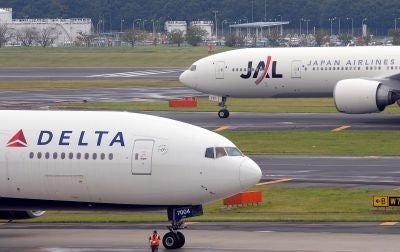Japan, Middle East and high oil prices hit leisure travel

Air travel fell sharply in March, according to new figures released by the International Air Transport Association (IATA), as turmoil in the Middle East and the effects of the Japanese earthquake discouraged people from traveling.
Passenger growth compared to the previous year dropped to 3.8 percent in March 2011, down from 5.8 percent in February, IATA said May 3, with Japan and the Middle East accounting for virtually all of the loss.
The impact of the events in Japan on global international traffic in March resulted in a 1 percent fall in travel, statistics showed, although in Japan itself travel demand fell by 22 percent and IATA warned that the effects would continue to be felt.
Disruptions in the Middle East cut global traffic by almost as much, with flights to and from the popular tourist destinations of Egypt and Tunisia still 10-25 percent below normal and travel to Libya virtually halted.
However, IATA also warned that the high price of oil - which has recently caused several airlines to increase fares or add fuel surcharges - was hitting leisure travelers and encouraging them to put off flying.
Latin American carriers fared the best, with demand up by 22 percent (due to the effects of the earthquake in Chile in March 2010), while Middle Eastern carriers also posted a rise of 5.6 percent.
In Europe, demand grew by 5.3 percent and in the US there was a 3.7 percent improvement on 2010 - a fall of three percentage points on February's growth.
Asia-Pacific airlines were unsurprisingly and uncharacteristically badly affected, with passenger demand essentially flat on 2010's figures despite the phenomenal growth of some countries in the region.
Africa posted a fall of 7 percent in demand, said IATA.
Join our commenting forum
Join thought-provoking conversations, follow other Independent readers and see their replies
Comments
Bookmark popover
Removed from bookmarks